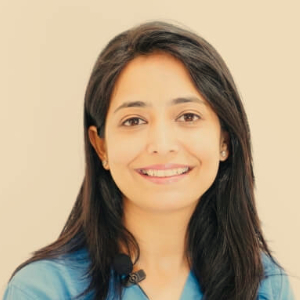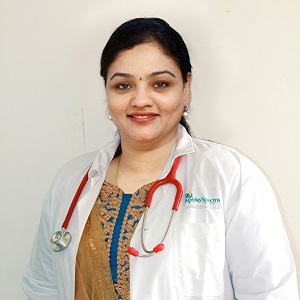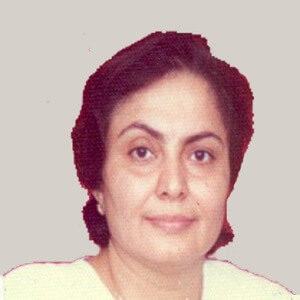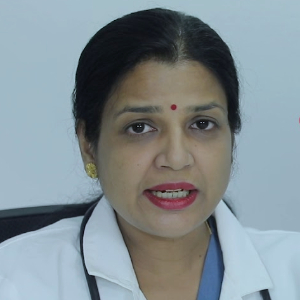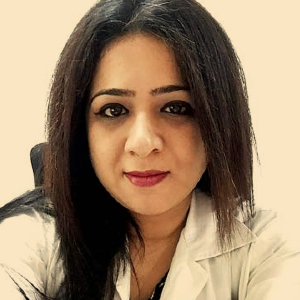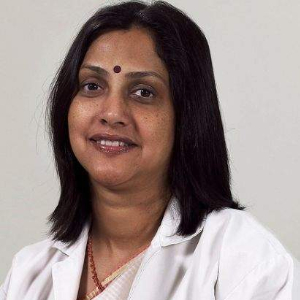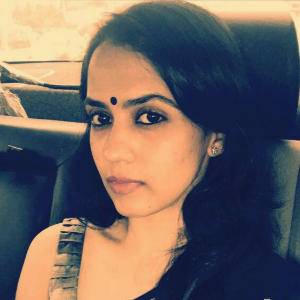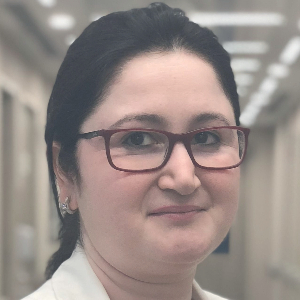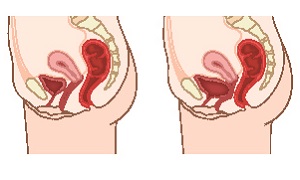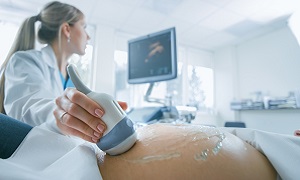Best Doctors in India for Bladder Prolapse Treatment
- IVF Specialist, Gynaecologist & Obstetrician; Mumbai, India
- Over 10 years’ experience
Profile Highlights:
- Dr. Ritu Hinduja is a renowned Infertility expert in Mumbai with experience in the management of infertility and reproductive medicine and has training in all assisted reproduction techniques (ART).
- She holds a Masters degree in Reproductive Medicine and also has a Diploma in the same field from Keil University in Germany.
- Dr. Hinduja’s primary interest lies in the management of patients with fertility issues that include low ovarian reserve and preserving fertility for cancer patients and women who want to delay childbearing by freezing eggs.
- Obstetrician & Gynaecologist, Chennai, India
- Over 22 years’ experience
Profile Highlights:
- Dr. Meenakshi Sundaram is a gynecologist and obstetrician in Chennai and has over 22 years of experience in these fields.
- She completed her MBBS from the Medical University (TNMGRMU) and Completed her MD in Obstetrics and Gynecology (Obstetrics and Gynecology) Medical University (TNMGRMU).
- Some of the services provided by the doctor are: Uterine Fibroid Treatment, Uterine Artery Ligation
- Obstetrician & Gynaecologist, New Delhi, India
- Over 39 years’ experience
Profile Highlights:
- Dr. Madhu Roy is one of the leading Gynecologists and Obstetricians in India, practicing successfully for about 39 years. Dr. Roy practices at Indraprastha Apollo Hospital as a Senior Consultant.
- She assists patients by treating Uterine Fibroids, ovarian cysts, Endometriosis, Robotic Surgery, Subfertility, Pelvic Organ Prolapse, Gynecological Cancers, and any other conditions with her experience.
- Dr. Madhu Roy also provides counseling on contraception, medical termination of pregnancy, biopsies, laparoscopic surgery, and fertility preservation procedures.
- IVF Specialist & Gynaecologist, Bengaluru, India
- Over 15 years’ experience
Profile Highlights:
- Dr. Pallavi Prasad is a well-known Gynecologist in Bengaluru specializing in infertility and IVF.
- Dr. Prasad is a specialist in all kinds of Artificial Reproductive Techniques (ART) including IVF, ICSI, IUI, and IMSI. She also provides services for vitrification and cryopreservation.
- Dr. Pallavi Prasad has also written articles and papers on her field of expertise and has published several columns on infertility and ART in renowned journals and newspapers.
- IVF Specialist & Gynaecologist, Mumbai, India
- Over 24 years’ experience
Profile Highlights:
- Dr. Sulbha Arora is a well-known Gynecologist and Obstetrician and an Infertility Specialist in Mumbai currently working with Nova IVI Fertility.
- She has 24+ years of experience in IVF and Assisted Reproductive Techniques (ART) and has helped a large number of women enjoy the happiness of motherhood.
- Her primary area of focus includes fertility medicine, fertility preservation, third-party reproduction, and ultrasound.
- IVF Specialist & Gynaecologist, Bengaluru, India
- Over 25 years’ experience
Profile Highlights:
- Dr. Aviva Pinto Rodrigues is a Consultant in Gynecology and Infertility and has an extensive experience of over 2 decades in Reproductive Medicine and holds a Diploma in the field from the University of Kiel in Germany.
- Her expertise lies in all forms of ART including IVF, IUI, ICSI, IMSI, and also finds interest in the treatment of genital tuberculosis and reproductive endocrinology.
- Obstetrician & Gynaecologist, Gurugram, India
- Over 30 years’ experience
Profile Highlights:
- Dr. Anjali Kumar is a renowned gynecological endoscopic surgeon, who has done certificate courses as well as training at the World Association of Laparoscopic Surgeons and Ethicon Endosurgery Institute in New Delhi.
- Her technique was presented, published, and also accepted at the apex national conference at the Kumar’s Technique. She has also featured in several talk shows in different shows in multiple TV channels like NDTV, Doordarshan, The People, Khabrein Aaj Tak, etc.
- IVF Specialist & Gynaecologist, Mumbai, India
- Over 17 years’ experience
Profile Highlights:
- Dr. Sneha Sathe is a consultant gynecologist and infertility specialist in Mumbai and associated with Nova IVI Fertility.
- She has close to a decade of experience in the field of ART and Reproductive medicine and has achieved several successful pregnancies through IVF, IUI, ICSI, and other techniques of assisted reproduction.
- Dr. Sneha Sathe finds special interest in mild IVF and is also experienced in other aspects of gynecology such as management of PCOS, recurrent implantation failure, endometriosis, and failed IVF cycles.
- IVF Specialist & Gynaecologist, Gurugram, India
- Over 18 years' experience
Profile Highlights:
- Dr. Meenakshi Dua is a well-known gynecologist in India specializing in IVF and Infertility.
- She has an experience of 18+ years in the field of infertility treatment and has helped a large number of people with infertility issues.
- Dr. Meenakshi Dua is an expert in all kinds of Assisted Reproductive Technology and is highly trained in reproductive endocrinology, fetal Doppler, and advanced-level ultrasounds in gynecology and obstetrics.
- Obstetrician & Gynaecologist, New Delhi, India
- Over 20 years’ experience
Profile Highlights:
- A qualified and reputed medical practitioner Dr. Asawari Kesari Kapoor is among the celebrated gynecologists and obstetrician doctors in Delhi. With years of experience, she is proficient in identifying, diagnosing, and treating various health issues and problems related to her field.
- Dr. Asawari Kesari Kapoor completed her MBBS from the University of Mumbai, in 1999, and her DGO from the same university in 2002.
- She later got her diploma in Gynecology and Obstetrics from the College of Physicians and Surgeons in 2004. She is currently practicing as a Senior Consultant at Indraprastha Apollo Hospitals.
Best Hospitals in India for Bladder Prolapse Treatment
Pushpawati Singhania Hospital & Research Institute, New Delhi
- City: New Delhi, India
Hospital Highlights:
- Established in 1996, Pushpawati Singhania Research Institute is one of the top hospitals in the NCR region, as well as one of the top facilities in India for gastroenterology. The hospital is one of South Asia’s first institutes in medical and surgical treatment for diseases related to digestion.
- The hospital is equipped with state-of-the art facilities coupled with the latest equipment as well as renowned consultants from various parts of India as well as other parts of the world.
W Pratiksha Hospital, Gurgaon
- City: Gurugram, India
Hospital Highlights:
- W Pratiksha Hospital, Gurugram, is one of the best hospitals in the NCR region. It is also a top hospital in India for IVF. Since its inception, the hospital has performed over 5500 successful IVFs. The hospital also specializes in gynecology.
- With over 20 years of experience in providing quality healthcare, the hospital is known as one of the most trusted and valued health providers in India.
- Equipped with world-class medical facilities and advanced technology, the hospital’s doctors and clinicians also have a track record of delivering excellent results. The hospital is also known for focusing on preventive well-being as much as on curative treatment.
- The hospital has earned the trust of its patients, by providing the best available treatments at affordable costs.
Narayana Superspeciality Hospital, Gurugram
- City: Gurugram, India
Hospital Highlights:
- Situated near DLF Cyber City, Gurugram, Narayana Superspecialty Hospital is one of the top medical facilities in the Delhi NCR region, catering to the needs of the people. Known for its commitment to quality medical care and patient service, the hospital is a state-of-the-art facility with planned and well-equipped sections, which includes a spacious OPD area as well as comfortable patient rooms.
- It is the closest super-specialty hospital from Indira Gandhi International Airport towards Gurugram, and also the nearest super specialty hospital from DLF Cyber City. It is also close to major residential areas in Gurugram.
- It is part of the renowned Narayana Health Group. Established in 2000, by Dr. Devi Shetty, a renowned cardiac surgeon, it has grown to be one fo India’s leading healthcare groups.
Sir Ganga Ram Hospital, New Delhi
- City: New Delhi, India
Hospital Highlights:
- Sir Ganga Ram Hospital, New Delhi is known to provide the latest medical procedures with the latest technology in all of its units.
- The hospital has a team of reputed doctors, nurses, and healthcare professionals that ensure that patients receive quality care at affordable costs.
- Staffed with a team of highly qualified doctors, dedicated nurses, and paramedical and non-medical staff, the hospital aims to lead in healthcare delivery, medical education, training, and research.
- As per the vision of the founder, the hospital also provides free treatment to the economically weaker sections of society.
- Sir Ganga Ram Hospital also provides training to young doctors under the Diplomate in National Board(DNB) program. The DNB program at the hospital was started in 1984 and it is known for currently running the maximum number of DNB specialties in the country. It also has the distinction of having the first bone bank in India.
CK Birla Hospital, Gurugram
- City: Gurugram, India
Hospital Highlights:
- The CK Birla Hospital in Gurugram is a NABH-accredited multi-specialty hospital.
- The hospital strives to increase the quality of healthcare by focusing on UK NHS nurse and midwife training requirements. Policies and practices derived from the National Institute for Health and Treatment Excellence (NICE) recommendations in the United Kingdom ensuring that a strong focus on safety, high-quality clinical care, and sanitation is maintained.
- The hospital’s cutting-edge technology and facilities allow for real-time communication and seamless collaboration among caregivers, ensuring accuracy and the best possible results. Those with foreign experience and accreditations make up part of the hospital’s team of clinicians.
KIMS Hospital, Hyderabad
- City: Hyderabad, India
Hospital Highlights:
- KIMS Hospital (a brand name of Krishna Institute of Medical Sciences) is one of the largest and best multi-speciality hospitals in Hyderabad. The hospital provides various treatments to an enormous number of patients.
- The hospital has a capacity of more than 3000 beds. KIMS Hospitals offers different healthcare services in more than 25 specialities and super specialities.
- The hospital is equipped with modern medical equipment and technology. It has robotic equipment to provide minimal invasive techniques for patients.
- The hospital is aimed at providing world-class healthcare facilities and services at an affordable cost for patients.
- The various specialities and departments of the hospital include neurosciences, gastroenterology & hepatology, robotic science, reproductive sciences, dental science, oncological sciences, organ transplantation, heart and lung transplantation and mother and child care.
Fortis Hospital, Shalimar Bagh
- City: New Delhi, India
Hospital Highlights:
- Fortis Hospital in Shalimar Bagh is a multi-super specialty hospital that strives to provide world-class patient care by leaving no stone unturned.
- Fortis, Shalimar Bagh, with 262 beds and a 7.34-acre footprint, provides the best level of medical care through its team of doctors, nurses, technicians, and management professionals.
Reliance Hospital, Mumbai
- City: Mumbai, India
Hospital Highlights:
- Reliance Hospital is one of the best super-specialty care hospitals in Navi Mumbai.
- The main purpose of this hospital is to become a trustworthy place for the best health and hope for society. The hospital is well connected to the suburbs of Mumbai and Navi Mumbai.
- The hospital has various specialty departments, viz., Accident & Emergency, Anesthesiology, Dental Services, Dermatology, Diabetology, Dietetics Nutrition, Endocrinology, ENT, Gastroenterology, General Surgery, Gynaecology And Obstetrics, Hepato Pancreato Biliary Surgery, Infectious Disease, Internal Medicine, Interventional Radiology, Laboratory Medicine, Minimal Access Laparoscopic Surgery, Nephrology, Neurosciences, Opthalmology, Orthopaedics, Paediatrics, Pain Management Palliative Care, Physical Medicine Rehabilitation, Plastic And Reconstructive Surgery, Psychiatry, Pulmonary Medicine, Radiology, Rheumatology, Transplant, Urology Andrology, Vascular Surgery
Lilavati Hospital & Research Centre, Mumbai
- City: Mumbai, India
Hospital Highlights:
- Lilavati Hospital & Research Centre is India’s premier multi-speciality tertiary care hospital and has been recognised as a global medical excellence centre.
- Lilavati Hospital & Research Centre has built an unrivalled level of trust with its patients over the years, thanks to a solid foundation that comprises cutting-edge facilities, the best medical competence, research, education, and charity endeavours.
- The hospital is quite proud of the fact that it now serves patients from all kinds of backgrounds, not just from the United States but from all around the world.
- The hospital has a total of 323 beds, one of the largest Intensive Care Units (ICUs), 12 Operation Theatres with modern amenities, over 300 consultants, and almost 1,800 personnel.
Venkateshwar Hospital, Dwarka, New Delhi
- City: New Delhi, India
Hospital Highlights:
- State-of-the-art technology and devoted healthcare professionals have been brought together under one roof at Venkateshwar Hospital to provide genuine medical care. The hospital’s professionals work together as a team to deliver the best possible treatment to their patients, using the most sophisticated equipment and information technology.
- Venkateshwar Hospital’s mission is to attain global excellence in healthcare by employing evidence-based, ethical clinical practices and cutting-edge technology by a team of highly skilled experts.
Bladder Prolapse
In women, the bladder is normally held in place by a hammock of supportive pelvic floor muscles as well as tissue. When these tissues are stretched or get weak, the bladder may drop or bulge through this layer and into the vagina. This can lead to bladder prolapse, which is also termed a cystocele. The prolapsed bladder may appear at the opening of the vagina as well, in severe cases. Sometimes it might even protrude through the vaginal opening.
Bladder prolapse is a common condition among women. The symptoms can be bothersome, but they are treatable. A prolapsed bladder is rarely a life-threatening condition, and in most cases, it is treatable without surgery. Sometimes even severe prolapsed bladders can be corrected without any form of surgery.
Symptoms
The first symptom that women with a prolapsed bladder might notice is the presence of tissue in the vagina that many women can describe as something that can feel like a ball.
A prolapsed bladder can have several other symptoms which can include the following:
- Difficulty while urinating
- Pain or discomfort in the pelvis
- Tissue protruding from the vagina
- A feelings that the bladder is not empty immediately following urination
- Stress
- Incontinence
- More frequent infections in the bladder
- Lower back pain
- Painful intercourse
Some women might not experience or notice symptoms if their condition is mild.
However, women who notice symptoms of a prolapsed bladder should see a doctor immediately. A prolapsed bladder can also be associated with prolapses of other organs within a woman’s pelvis. Timely medical care is important to evaluate for as well as prevent any problematic symptoms as well as complications caused by weakening tissue as well as muscle in the vagina. Prolapsed organs are unable to heal themselves, and may worsen over time. Several treatments are available to correct a prolapsed bladder.
Causes
The most common factors associated with a prolapsed bladder include the following-
Childbirth: This is known as the most common cause of a prolapsed bladder. The delivery process is stressful on the vaginal tissues as well as muscles, which support the bladder.
Straining: Lifting objects that are too heavy or straining during a bowel movement, or having a long-term condition that causes coughing, or having long-term constipation can also damage the muscles of the pelvic floor.
Estrogen: Estrogen is a hormone that helps to maintain the strength as well as the health of muscles in the vagina. This hormone is not produced after menopause. This can lead to a prolapsed bladder as well.
Diagnosis
Bladder prolapse can be easily detected with a clinical history and a pelvic exam. The exam can be performed while a patient is lying down, straining or pushing, or even standing. Your doctor or healthcare worker might need to measure how serious the prolapse is and which parts of the vagina are falling.
Few other tests and imaging studies might also be required to check the pelvic floor, such as:
- Urodynamics
- X-rays
- Cystoscopy
- Ultrasound
- MRI
Treatment
If the condition is mild and does not produce any pain or discomfort, then you might not require any medical or surgical treatment. A patient having a mild prolapsed bladder should, however, refrain from heavy lifting or straining, and this might be recommended by your doctor.
If your case is more serious, then various factors will be taken into account by your doctor, such as the patient’s health, treatment preference, and most importantly, the severity of the condition.
Non-surgical treatments
Pessary
A pessary is a tool placed within the vagina to help in holding the bladder in place. Pessaries require removal and cleaning at regular intervals to prevent any infection. Some pessaries allow the woman to do this themselves. However, for other types, a doctor will need to remove and clean them. Estrogen cream is also used commonly with this tool to help prevent infection as well as erosion of the vaginal wall.
Estrogen replacement therapy
This therapy has proven to be beneficial for many women with prolapsed bladders. Estrogen helps in strengthening as well as maintaining muscles in the vagina.
For mild-to-moderate cases of prolapsed bladder, the doctor might recommend moderating a few activities such as avoiding heavy lifting or straining. The doctor may also recommend certain exercises, which can help in tightening the muscles of the pelvic floor.
Medications for Prolapsed Bladder
Estrogen replacement therapy might also be considered by your doctor for a prolapsed bladder. This therapy can help the body strengthen the tissues in as well as around the vagina. Estrogen replacement therapy can’t be used by everyone, which includes people with certain types of cancer. Women’s bodies stop creating as much estrogen naturally after menopause, which causes weakening of the muscles of the vagina. In mild cases of prolapsed bladder, estrogen may be prescribed in an attempt to reverse bladder symptoms of the prolapse, such as vaginal weakening and incontinence. However, when the prolapsed is severe, estrogen replacement therapy might be considered along with other types of treatment.
Estrogen can be administered orally as a pill or even as a patch or cream.
Surgery
Surgery is considered for severely prolapsed bladders that cannot be managed with a pessary or medications. Prolapsed bladder surgery is generally performed through the vagina, and the goal of this procedure is to secure the bladder in its proper position. The bladder is repaired with an incision created in the vaginal wall.
Depending on the procedure, regional, general, or local anesthesia might be used. For smaller surgeries, patients are generally able to go home the same day.
After surgery, it might take around six weeks for a woman to return to a normal level of activity. Surgeons might however recommend reducing or eliminating activities that can cause straining for at least six months.
Prevention
A high-fiber diet as well as a daily intake of plenty of fluids should reduce the risk of developing constipation, which can reduce the risk of bladder prolapse. Straining should also be avoided during bowel movements, if possible. If you are suffering from long-term constipation, then it is best to seek a medical condition to lessen the chance of developing a prolapsed bladder.
Heavy lifting is also associated with a prolapsed bladder and it should be avoided if possible. Obesity is also a risk factor for developing a prolapsed bladder. Weight control might help prevent this condition from developing.

